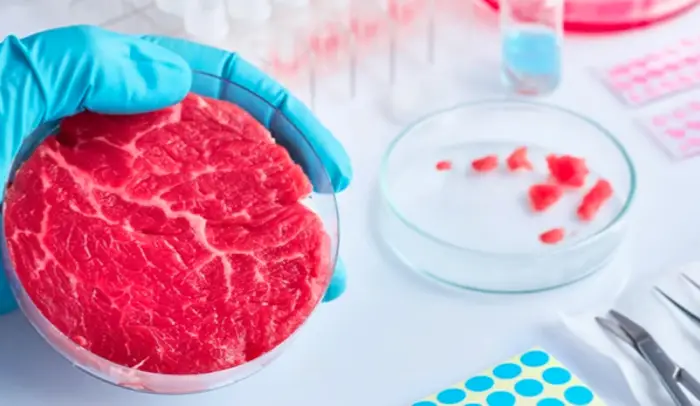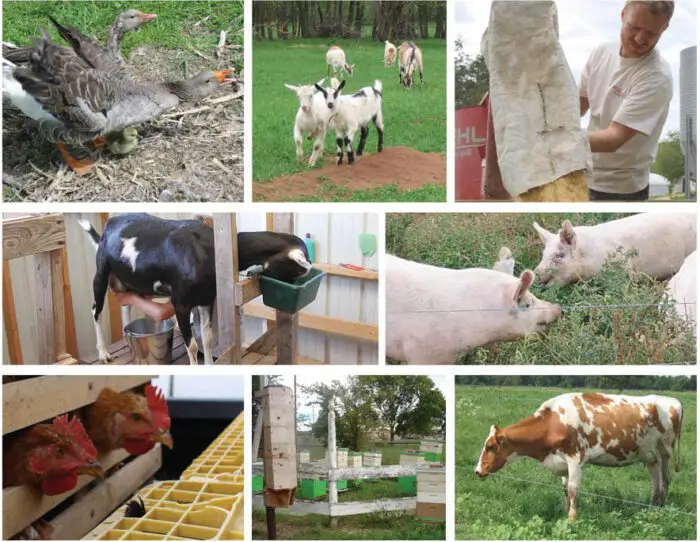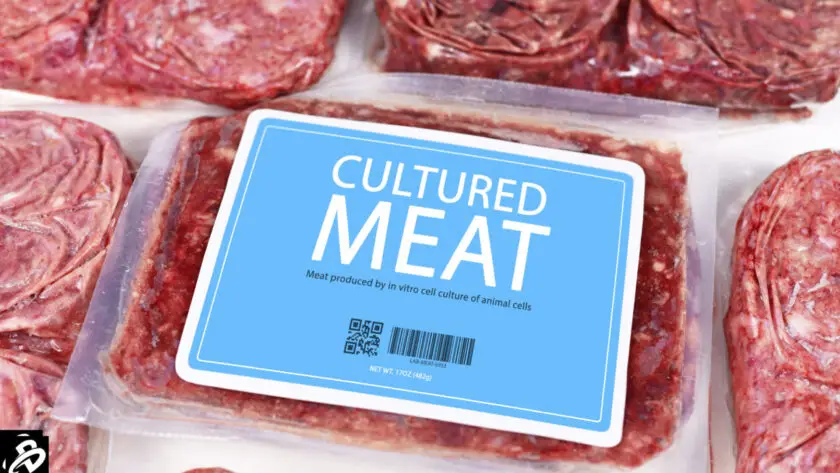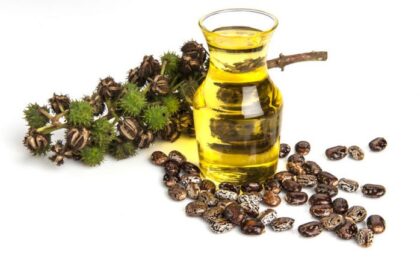In recent years, the concept of lab-grown meat has garnered significant attention as a potential solution to the environmental problems associated with traditional meat farming.
Proponents argue that cultured meat could provide a sustainable alternative that reduces land usage, water consumption, and the need for antibiotics.
However, a groundbreaking study conducted by researchers from the University of California, Davis (UCD) and the University of California, Holtville, has uncovered a significant downside to lab-grown meat production that challenges its sustainability claims.
These findings raise important questions about the future of lab-grown meat and its impact on the environment.

The study, led by UCD food scientist Derrick Risner and his team, reveals that lab-grown meat could potentially produce between four to 25 times more carbon dioxide per kilogram than traditional beef farming.
This startling conclusion contradicts the prevailing belief that cultured meat is an environmentally friendly option. It highlights the hidden costs and challenges associated with large-scale production of lab-grown meat, emphasizing the need for a more critical examination of its sustainability.
Cultured meat is produced by coaxing animal cells to form tissues, such as fats, muscle, and connective tissues, which can be consumed by humans.
While it has the potential to reduce land usage and water consumption compared to conventional livestock rearing, the production process of lab-grown meat comes with significant environmental costs.
To produce cultured meat, laboratories must extract growth factors from animal serums and cultivate crops for sugars and vitamins. This process requires extensive purification to prevent microbial contamination, which consumes a considerable amount of energy.
Bacterial contamination can also hinder the growth of animal cells, as bacteria multiply at a faster rate. These energy-intensive processes contribute to higher carbon dioxide emissions, undermining the perceived sustainability of lab-grown meat.
To potentially resolve this issue, the researchers suggest that lowering the current pharmaceutical-grade purification standards to a food-grade standard could significantly reduce energy requirements.
This adjustment would result in greenhouse gas emissions from lab-grown meat production being only slightly higher than those of traditional beef farming. But with a high concern for bacterial contamination, doing that can create a lot more risk than what it would be worth.
Regardless, lab-grown meat still falls short when compared to the efficiency of the best cattle-reared beef systems currently available. According to the researchers’ estimates, these systems continue to outperform lab-grown meat in terms of environmental impact.
The study did not consider the environmental consequences of constructing larger facilities for scaled-up production. Establishing such facilities poses unique challenges, as animal cells are more sensitive to their environment than bacteria or fungi.
Specialized and energy-intensive bioreactors are required to create the right conditions for the delicate cells, and the environmental impacts of constructing these facilities remain largely unexplored.
Considering the growing urgency to combat global warming, investing in improving the efficiency of existing livestock farms seems to be a more immediately impactful strategy.

By reducing their environmental footprint, these farms could achieve greater emissions reductions more quickly than the lab-grown meat industry, which is still developing.
Premature scaling of lab-grown meat technology without addressing key issues could undermine the environmental goals the industry aims to achieve, and become quite dangerous if exposed to the public before fully soundproof.
The demand for meat is projected to rise by over 70 percent by 2050, according to the UN Food and Agriculture Organization. Livestock farming currently contributes approximately 15 percent of all human greenhouse gas emissions.
It’s important to note that curbing the environmental impact of our dietary habits doesn’t necessarily require complete elimination of meat consumption.
Purchasing meat from a local sustainable farmer offers several benefits, both for individuals and the environment. Here are some key advantages:
- High-Quality, Fresh Meat: Local sustainable farmers often prioritize the quality of their meat. They typically raise animals in a more natural and humane manner, allowing them to roam freely, feed on a natural diet, and avoid the use of antibiotics and hormones. As a result, the meat tends to be fresher, tastier, and more nutritious compared to industrially produced meat.
- Support for Local Economy: Buying meat from local farmers contributes to the local economy. These farmers are often small-scale producers who rely on community support to sustain their business. By purchasing their products, you help create jobs, support local families, and promote economic resilience in your area.
- Reduced Carbon Footprint: Buying meat from local farmers reduces the carbon footprint associated with transportation. Locally sourced meat travels shorter distances from the farm to your plate, minimizing the emissions generated during transportation. This localized food system helps decrease reliance on fossil fuels and promotes sustainability.
- Environmental Stewardship: Sustainable farmers prioritize environmentally friendly practices. They often adopt regenerative agriculture techniques that promote soil health, reduce erosion, and enhance biodiversity. These methods contribute to carbon sequestration, water conservation, and the preservation of ecosystems, leading to a more sustainable and resilient environment.
- Animal Welfare: Local sustainable farmers typically prioritize the well-being of their animals. They provide spacious and natural habitats, allowing animals to express their natural behaviors. This humane approach avoids the overcrowded and stressful conditions commonly found in industrial factory farming.
- Transparency and Trust: Purchasing meat from local farmers enables you to establish a direct relationship with the producer. You can visit the farm, ask questions, and gain a better understanding of their farming practices. This transparency fosters trust and confidence in the meat you consume, as you have firsthand knowledge of how it was raised and processed.
- Access to Specialty and Heritage Breeds: Local farmers often raise unique and heritage livestock breeds that are not commonly found in industrial farming systems. By supporting these farmers, you contribute to the preservation of genetic diversity and help prevent the loss of valuable animal breeds.
- Community Engagement: Buying meat from local farmers promotes community engagement. Many sustainable farmers organize farm tours, workshops, and events where you can learn about farming practices, connect with like-minded individuals, and build a sense of community around sustainable food production.
Check out Local Harvest to find small family farms near you.
In conclusion, the promise of lab-grown meat as a sustainable alternative to traditional meat farming is currently overshadowed by unforeseen environmental challenges. The study’s findings emphasize the need for a careful evaluation of new technologies and the importance of comprehensive life cycle assessments to understand their full environmental impact.
As consumers, our food choices play a pivotal role in shaping the future of our planet. Therefore, staying informed about the implications of these choices is more crucial than ever. By making conscious decisions, we can contribute to a more sustainable future for our planet and ensure that our actions align with our environmental goals.






